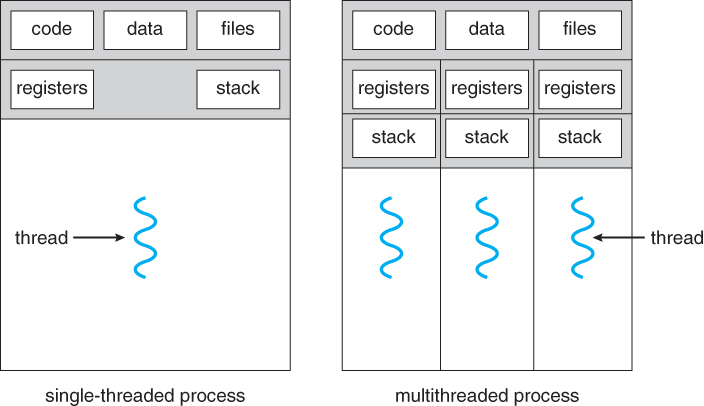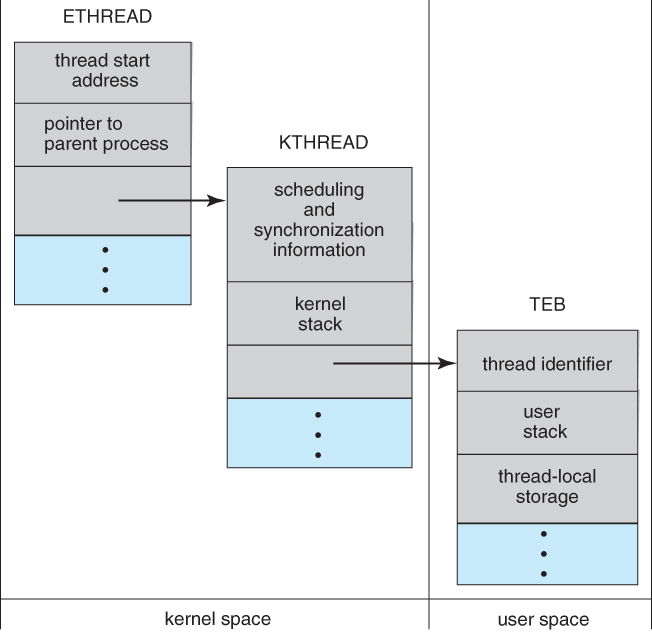Why we need thread inside the process?
- Application
- Cost
- Performance
If without thread?
- Single service process
- lower performance
- sequencial programming (i.e. simple)
- Finite state machine
- use non-blocking I/O
- complex programming model
Three ways to construct a server (Modern OS)
| Model | Feature |
|---|---|
| Threads | Parallelism, blocking system calls |
| Single-threaded process | No parallelism, blocking system calls |
| Finite-state machine | Parallelism, nonblocking system calls, interrupts |
Process: the Recources owner
Thread: a instance of a process, the scheduling unit of CPU
- sometimes called light-weight process
- has status
- need to store context while not running
- registers (e.g. program counter, etc.)
- has its own stack and stack pointer
return value of function is in the stack
- share process address space and other resources
- User level thread
- Implement in user space
- e.g. Use POSIX Pthreads library
- Kernel level thread
- Implement by modifying kernel or OS
- Mix these two together
- Creating thread in user space and scheduling in kernel space
- Many user threads share (run on) a kernel thread
- e.g. Solaris
- Pros and Cons
- Pros
- It can run on any OS (just need the library)
- Cons
- Most of the system call is blocking, thus if kernel block the "process" then all the thread the process has will be blocked too. (because in the aspect of OS, there is only one process)
- Pros
POSIX stands for Portable Operating System Interface
| Thread call | Description |
|---|---|
| Pthread_create | Create a new thread |
| Pthread_exit | Terminate the calling thread |
| Pthread_join | Wait for a specific thread to exit |
| Pthread_yield | Release the CPU to let another thread run |
| Pthread_attr_init | Create and initialize a thread's attribute structure |
| Pthread_attr_destroy | Remove a thread's attribute structure |
- Modify system to non-blocking
- Reimplement the I/O library system call function
Kernel don't know the existence of threads
TBD
Example in real world
Linux does not distinguish between processes and threads - It uses the more generic term "tasks"
Check out the task_struct
fork()clone()
Process is the "owner of resources" (e.g. Memory); Thread is the deploy unit of CPU
Operating System Concepts 9ed.
- Notes

